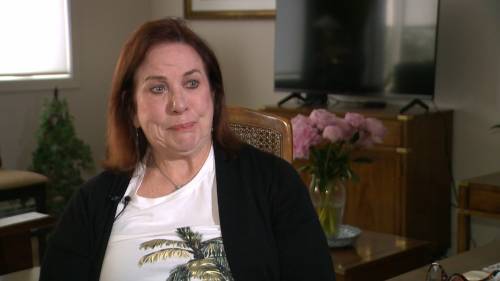When Margaret Thompson first connected with “Richard” on Facebook Dating in 2021, she had no idea the relationship would cost her $800,000 and leave her financially devastated. The 59-year-old Calgary resident, who works in healthcare, became the victim of what police are calling one of the largest romance scams they’ve seen in our city.
I’ve been covering Calgary’s crime beat for nearly a decade, and these stories never get easier to tell. What makes Thompson’s case particularly heartbreaking is how methodically she was manipulated over an 18-month period by someone she never actually met in person.
“He told me he was a widower working on an overseas engineering project,” Thompson explained when we met at a quiet coffee shop in Kensington last week. Her eyes still carried the weight of betrayal. “Everything seemed so legitimate. He knew exactly what to say.”
The scammer, who claimed to be from Calgary but working in Turkey, built trust through daily conversations and created elaborate stories about investment opportunities. Thompson eventually transferred her life savings, remortgaged her Beltline condo, and even borrowed money from family members to invest in what turned out to be completely fabricated ventures.
Calgary Police Service Detective James Finlay from the Cyber-Crimes Unit told me these sophisticated scams have increased nearly 300% since the pandemic began. “These aren’t impulsive crimes. The perpetrators invest months building trust before asking for money,” Finlay explained. “They research their victims thoroughly and tailor their approach accordingly.”
What makes these scams particularly effective is how they blend emotional manipulation with seemingly legitimate business opportunities. The scammer targeting Thompson sent professional-looking contracts, introduced her to supposed “business partners” via video calls (who were likely accomplices), and provided fake credentials that would impress most people.
According to the Canadian Anti-Fraud Centre, Albertans lost over $20 million to romance scams last year alone, with Calgary representing nearly a third of those losses. The actual figures are likely much higher as many victims never report their experiences due to shame or embarrassment.
I’ve noticed a disturbing pattern covering these stories over the years. The victims aren’t necessarily naive or uneducated – Thompson has a master’s degree and describes herself as normally cautious with money. These scammers are professionals who have perfected psychological manipulation techniques that could fool almost anyone.
Local financial counselor Stephanie Wright from the Calgary Credit Counselling Society has seen the aftermath of these scams firsthand. “The financial devastation is only part of the damage,” Wright told me. “The emotional trauma and broken trust can take years to heal, if ever.”
Thompson’s road to recovery will be long. At 59, she’s now facing the prospect of delaying retirement indefinitely and rebuilding her financial life from scratch. “I feel such shame,” she admitted during our conversation. “But I’m speaking out because I don’t want anyone else to go through this.”
For Calgarians, there are some crucial lessons from Thompson’s experience. The Calgary Police Service recommends never sending money to someone you haven’t met in person, regardless of how long you’ve been communicating online. They also suggest researching investment opportunities independently and consulting financial advisors before transferring funds.
Be particularly suspicious if your online romantic interest quickly moves communication off dating platforms to messaging apps, claims to work overseas, or has reasons they can’t video chat or meet in person. These are classic warning signs that law enforcement officials see repeatedly in these cases.
If you suspect you’re being scammed, contact the Calgary Police Service’s non-emergency line immediately and report the incident to the Canadian Anti-Fraud Centre. There’s also local support available through the Calgary Victims Assistance Association for those dealing with the emotional aftermath.
As Calgary continues to see rising fraud cases, Thompson’s story serves as a powerful reminder that romance scammers don’t just target the stereotypical vulnerable person – they can ensnare virtually anyone looking for connection in our increasingly digital world.
The reality is that many of us are just one sophisticated scammer away from financial disaster. As Thompson told me before we parted ways, “I never thought it could happen to me. That’s what everyone needs to understand – these people are professionals at making you believe.”







